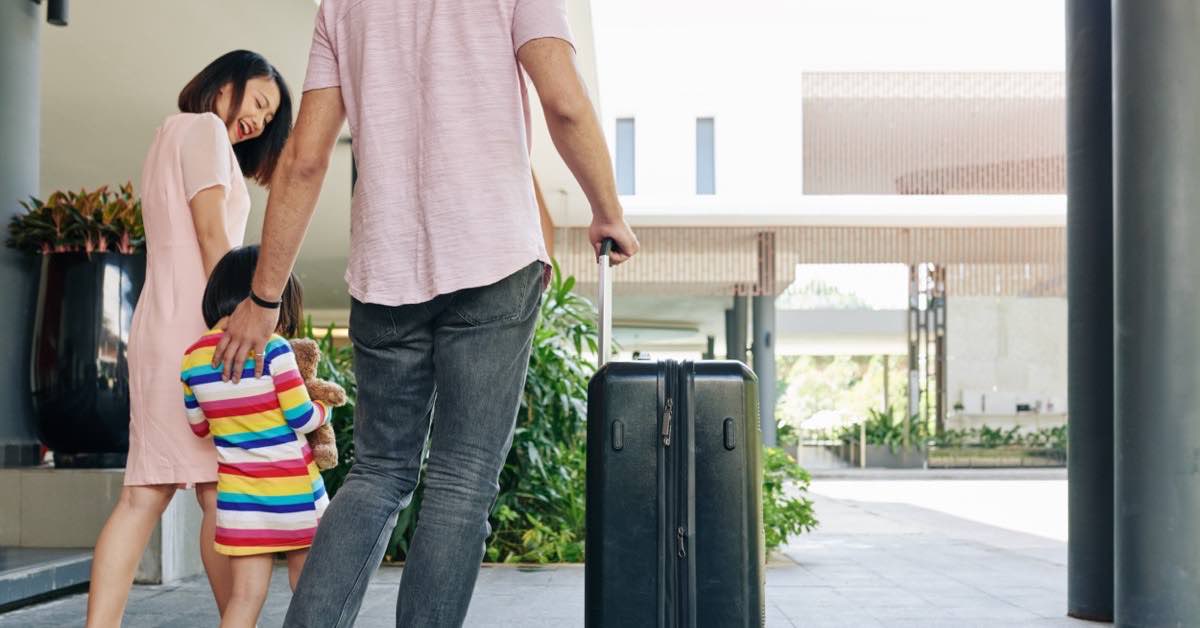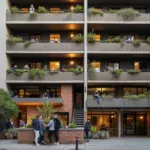Living in an apartment offers a unique experience that challenges our mindset and encourages us to embrace a flexible and sustainable lifestyle. In this article, we will explore the benefits of apartment living, the communal aspect of apartment lifestyle, and the importance of adaptability and space optimisation. We will also delve into the mindset of minimalist living and community engagement, discussing how apartment culture fosters shared resources and independent living. Lastly, we will touch upon the significance of efficient organisation, mindful consumption, and the urban mindset in promoting sustainable living.

The Benefits of Apartment Living
Living in an apartment comes with a plethora of advantages that make it an appealing choice for many. Firstly, convenience is a key factor. Apartments are often located in prime areas, offering easy access to essential amenities such as supermarkets, cafes, and public transportation. This proximity not only saves time but also reduces the need for long commutes, contributing to a more sustainable lifestyle.
Secondly, affordability is a significant advantage of apartment living. Renting an apartment is generally more budget-friendly than buying a house, making it an attractive option for individuals and families looking to save money or live in expensive urban areas. Moreover, apartments often include maintenance and utility costs in the rent, relieving residents from the additional financial burthens associated with homeownership.
Lastly, apartments provide access to a wide range of amenities that enhance the overall living experience. From fitness centres and swimming pools to communal gardens and rooftop terraces, these shared spaces foster a sense of community and allow residents to enjoy facilities they might not afford or have space for in a traditional home setup.
In summary, the advantages of apartment living are evident in the convenience, affordability, and access to amenities it offers. By residing in an apartment, individuals can enjoy a flexible and sustainable lifestyle, taking advantage of the nearby resources and communal spaces available.
The Communal Aspect of Apartment Lifestyle
Living in an apartment not only provides us with a roof over our heads, but it also offers a vibrant community that fosters a sense of belonging and social interaction. Community engagement is an integral part of apartment living, as residents come together to create a supportive and connected environment. In this close-knit setting, neighbours become more than just faces passing in the hallway; they become friends, allies, and a support network. Sharing resources and experiences is at the core of apartment culture, where communal spaces such as gardens, gyms, and entertainment areas promote interaction and collaboration.
Apartment living allows us to break free from the solitary lifestyle often associated with traditional housing. The close proximity of neighbours encourages spontaneous conversations, impromptu gatherings, and collective activities. Whether it’s a friendly chat in the shared laundry room or a game nite in the communal lounge, the opportunities for social interaction are abundant. This sense of community helps combat feelings of loneliness and isolation, making apartment living an attractive choice for those seeking a more connected lifestyle.
Moreover, apartment communities often organise regular events and activities to engage residents and promote a sense of belonging. From yoga classes and book clubs to community clean-up initiatives and potluck dinners, there is always something happening that welcomes both individual participation and collective effort. These events not only create opportunities for socialising but also foster a sense of pride and ownership in the apartment community.
In summary, apartment living embraces community engagement as a powerful tool to enhance our overall experience. Building relationships, sharing resources, and participating in communal activities forge stronger connexions between residents and promote a sense of belonging. By actively engaging with our apartment community, we not only enhance our own well-being but contribute to the thriving and sustainable environment of the entire complex.
Adaptability and Space Optimisation
Living in an apartment requires us to embrace a mindset of adaptability. Adapting to limited space is crucial in making the most out of our apartment living experience. By optimising the available space, we can create a functional and comfortable environment to meet our daily needs. Utilising clever storage solutions such as multi-purpose furniture, wall-mounted shelves, and hanging organisers can help maximise space utilisation. Creating designated zones within the apartment, such as a study area or a cosy reading nook, allows us to efficiently utilise different corners of the space. Additionally, embracing a minimalist approach can be beneficial in reducing clutter and maintaining a streamlined living area.
Making the most out of our apartment also involves smart organisation techniques. Investing in handy storage solutions, such as stackable bins, drawer organisers, and under-bed storage containers, can help keep belongings organised and easily accessible. Implementing effective space-saving strategies, such as vertical gardening or utilising the back of doors for storage, can further optimise the limited space.
In addition to physical adaptability, the mindset of apartment living also encourages us to embrace flexibility in our daily routines. As space is limited, it is essential to be open to adjusting our habits and schedules. Creating flexible and multi-functional spaces allows us to adapt to various activities and needs throughout the day. For example, a dining table that can be converted into a workspace or a sofa that transforms into a guest bed enables us to make the most of our apartment’s limited square footage.
Living in an apartment fosters a strong sense of community. Engaging in communal activities and building relationships with neighbours adds value to our apartment living experience. Participating in community events, such as potluck dinners or fitness classes, allows us to connect with like-minded individuals and create a supportive network. Sharing resources, such as tools, books, or even carpooling arrangements, not only helps reduce waste but also builds a sense of belonging and co-operation within the apartment complex.
In conclusion, apartment living challenges us to embrace a mindset of adaptability and sustainability. By optimising limited space, organising efficiently, and embracing flexibility, we can create a comfortable and functional living environment. Engaging in communal activities and embracing minimalism fosters a sense of belonging and shared resources. With the right mindset, apartment living can be an enriching and sustainable lifestyle choice.
The Mindset of Minimalist Living
Living in an apartment challenges our mindset and encourages us to embrace a flexible and sustainable lifestyle. One of the key aspects of apartment living is the minimalist mindset, which alines perfectly with this type of lifestyle. Minimalism promotes a clutter-free and intentional lifestyle, advocating for owning only what is necessary and brings joy. In an apartment, space is often limited, and adopting a minimalist mindset allows us to make the most of the available space.
By decluttering and simplifying our surroundings, we create a sense of calm and reduce the burthen of unnecessary possessions. Living with less not only contributes to a more aesthetically pleasing living environment, but also reduces the time and effort spent on cleaning and organising. With fewer belongings to maintain, we have more freedom to pursue experiences and focus on what truly matters to us.
Additionally, minimalism encourages mindful consumption and promotes sustainable living. By prioritising quality over quantity and choosing eco-friendly products, we can reduce our environmental footprint. This mindset enables us to embrace a more sustainable lifestyle, making conscious choices that benefit both ourselves and the planet.
In the context of apartment living, the minimalist mindset is not just about physical possessions. It extends to our approach towards communal living and community engagement. Living in close proximity to our neighbours encourages us to rely on shared resources and cultivate a sense of community. Shared spaces such as communal gardens, laundry rooms, and recreational areas provide opportunities for meaningful interactions and collaborative living. We can borrow tools, share transportation, and engage in collective efforts to reduce waste and promote sustainable practises.
In conclusion, adopting a minimalist mindset in apartment living allows us to embrace a clutter-free and intentional lifestyle, promote sustainability, and foster a strong sense of community. By valuing experiences over material possessions, we can create a living space that is both inviting and environmentally conscious.
Shared Resources and Independent Living
Apartment culture encourages the sharing of resources and fosters independent living. This mindset of communal living allows residents to maximise the use of common spaces and amenities. Instead of each apartment having its own washing machine, residents can share a communal laundry room, reducing the overall energy and water consumption. Similarly, apartment complexes often have shared outdoor spaces, such as gardens or rooftop terraces, where residents can gather and socialise. This sense of community fosters a spirit of independence, as individuals come together to support and rely on one another.Moreover, living in an apartment encourages minimalism, as space optimisation becomes a priority. With limited square footage, residents learn to declutter and prioritise their possessions, leading to a more mindful and purposeful way of living.
Additionally, apartment living promotes a sustainable lifestyle by encouraging residents to engage in mindful consumption. With limited storage space, individuals are encouraged to think twice before making purchases and consider the environmental impact of their decisions. Urban living also promotes the use of public transportation and reduces reliance on private vehicles, reducing carbon emissions and congestion. Thru efficient organisation and a conscious approach to consumption, apartment dwellers contribute to a greener and more sustainable future.
In summary, apartment culture embraces the sharing of resources and fosters independent living. By maximising the use of common spaces and amenities, residents can reduce energy and water consumption. Additionally, the sense of community in apartment complexes promotes minimalism and mindful consumption. Living in an apartment also encourages a shift towards a more sustainable urban lifestyle, with a focus on efficient organisation and reduced reliance on private vehicles. Embracing this mindset of apartment living allows individuals to not only adapt to the challenges of a smaller space but also contribute to a more sustainable and environmentally conscious society.
Efficient Organisation and Mindful Consumption
Efficient organisation and mindful consumption are essential aspects of apartment living that promote sustainability and help reduce waste. By maintaining a clutter-free living space and adopting smart storage solutions, residents can maximise the use of limited square footage while minimising unnecessary purchases. Embracing a minimalist mindset encourages individuals to prioritise quality over quantity, leading to a more sustainable lifestyle. For example, investing in versatile furniture pieces that serve multiple functions can help optimise space and reduce the need for additional items.
In addition, practising mindful consumption involves being conscious of the environmental impact of our choices. By making informed decisions such as buying locally sourced products and supporting sustainable brands, apartment dwellers can contribute towards a more eco-friendly community. This mindset also includes reducing single-use items, recycling, and composting whenever possible. By embracing efficient organisation and mindful consumption, apartment residents can make a positive impact on the environment and create a more sustainable living environment.
The Urban Mindset and Sustainable Living
The urban mindset is closely linked to sustainable living, as it encourages individuals to adopt environmentally friendly practises that contribute to a greener future. By embracing a sustainable lifestyle, apartment dwellers can play a significant role in reducing their ecological footprint and creating a more sustainable future. One way apartment dwellers can contribute to a greener future is by practising energy conservation. This can be achieved by using energy-efficient appliances, turning off lights and electronics when not in use, and utilising natural light whenever possible.
Another important aspect of the urban mindset is promoting sustainable transportation. Apartment dwellers can choose to walk, bike, carpool, or take public transportation instead of relying solely on private vehicles. This not only reduces carbon emissions and traffic congestion but also encourages a healthier and more active lifestyle.
In addition to energy conservation and sustainable transportation, apartment dwellers can also engage in waste reduction and recycling. They can practise proper waste segregation by separating recyclables from non-recyclables and composting organic waste. Furthermore, apartment complexes can implement recycling programmes and provide recycling bins for residents.
By adopting the urban mindset and incorporating sustainable practises into their daily lives, apartment dwellers can make a significant contribution to a greener future. The communal aspect of apartment living provides an ideal platform for sharing resources such as tools, appliances, and even transportation. This not only fosters a sense of community but also reduces consumption and promotes a more sustainable lifestyle.
In conclusion, the urban mindset encourages apartment dwellers to embrace sustainable practises that contribute to a greener future. By practising energy conservation, promoting sustainable transportation, engaging in waste reduction and recycling, and sharing resources within the apartment community, individuals can make a positive impact on the environment. Embracing a sustainable lifestyle is not only beneficial for the planet but also for the well-being of apartment dwellers themselves.




